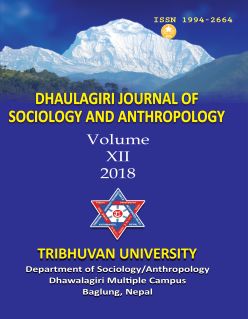When the Needs of Multicultural Classroom are Ignored: An Ethnographic Study in Nepal
DOI:
https://doi.org/10.3126/dsaj.v12i0.22180Keywords:
Socio-cultural context, learning and development, school, language of instructionAbstract
The teaching-learning process begins with the interaction between the teachers and the children. Without two-way interaction between student and teachers the process is incomplete. Using ethnographic research methods, this paper aims to analyze the role of teachers in a multicultural classroom. Attempt is made to do so by exploring and understanding the school culture and its impact on children’s learning as well as the perception of the teachers in its processes. It is found that the teachers’ cultural understandings and the children’s cultural background is not adequately addressed in the teaching-learning process.




